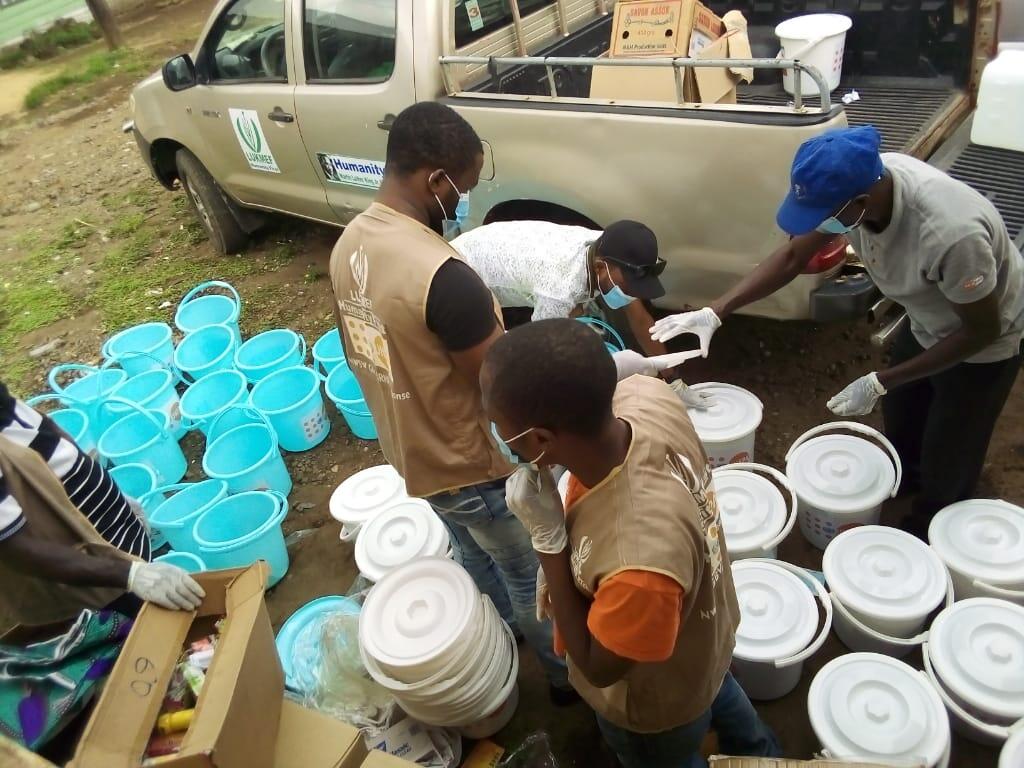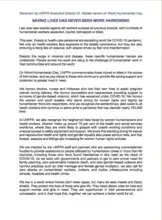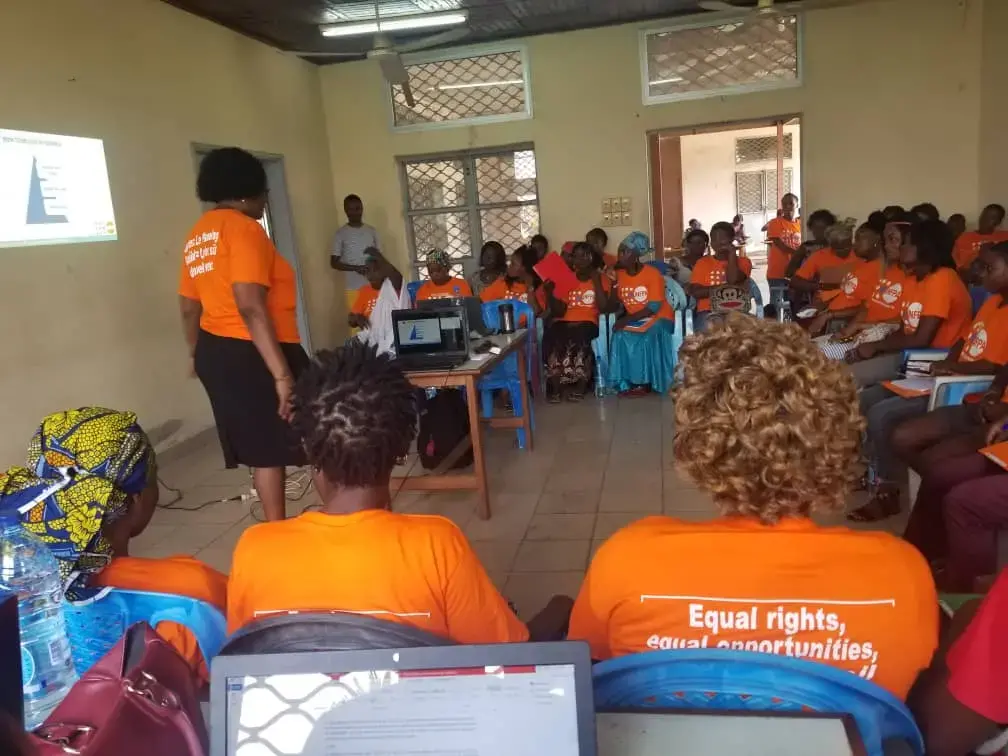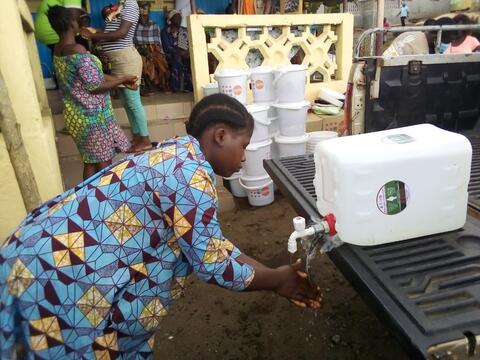
device used by IDP
woman during
Digity Kit
distribution.
Photo/ 2020
About 329 Dignity Kits were handed over to internally displaced and vulnerable women and girls in hard-to-reach communities of the South West Region. The distribution was carried out by UNFPA’s local implementing partner, the Martin Luther King Jr. Memorial Foundation (LUKMEF), in the communities of Mabeta Njanga, Bokwoango, Bomaka in the Fako Division and in Efong, Fotabong, Takwai, Mveh among others in the Lebialem Division. This new set of distribution started from the 18th of March 2020 all through the month of April.
In Cameroon, the outbreak of the Coronavirus pandemic has made the hygiene conditions of this vulnerable group, a greater cause for concern, hence, making the distribution of these Dignity Kits more timely. The said kits are a set of essential items for basic hygiene, comprising of a bucket, washing soap, a change of underwear and re-usable sanitary towels to name a few.
The distribution targetted women and girls aged between 10years to over 45 years with most recipients ranging between the ages of 25 and 35years. They had little or no survival means and were for the most people with disabilities, single elderly women in the host community and nursing mothers among others.In these host communities, most of them are exposed to various forms of Gender-based Violence (GBV) mostly sexual abuse. In addition to the Dignity kits provided, LUKMEF also carried out medical consultations to address mild conditions such as malaria as well as treatment of wounds. A handwashing disposal device was also made available for both personnel and beneficiaries to use during the distribution process. This further served as an opportunity to sensitise them on the prevention measures to be implemented to successfully avoid infection to COVID-19.
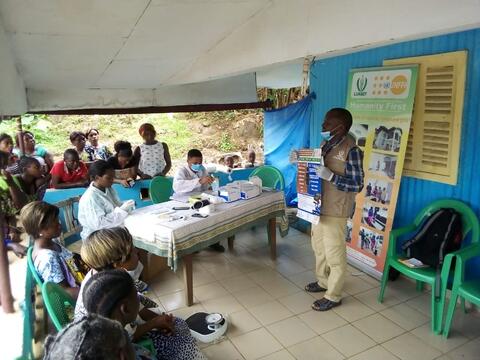
and medical
consultations.
Photo/ 2020
By reaching out to these internally displaced and vulnerable women with Dignity Kits, UNFPA, the UN sexual and reproductive health agency, ensures that women and girls maintain their hygiene and dignity during humanitarian crises. By so doing, they are able to keep their self-esteem and confidence, two key attitudes to help cope in stressful and potentially overwhelming situations. Equipping this women is tantamount to ensuring no one is left behind, be it in the heart of violent socio-political crisis or under devastating health circumstances such as that of COVID-19.

